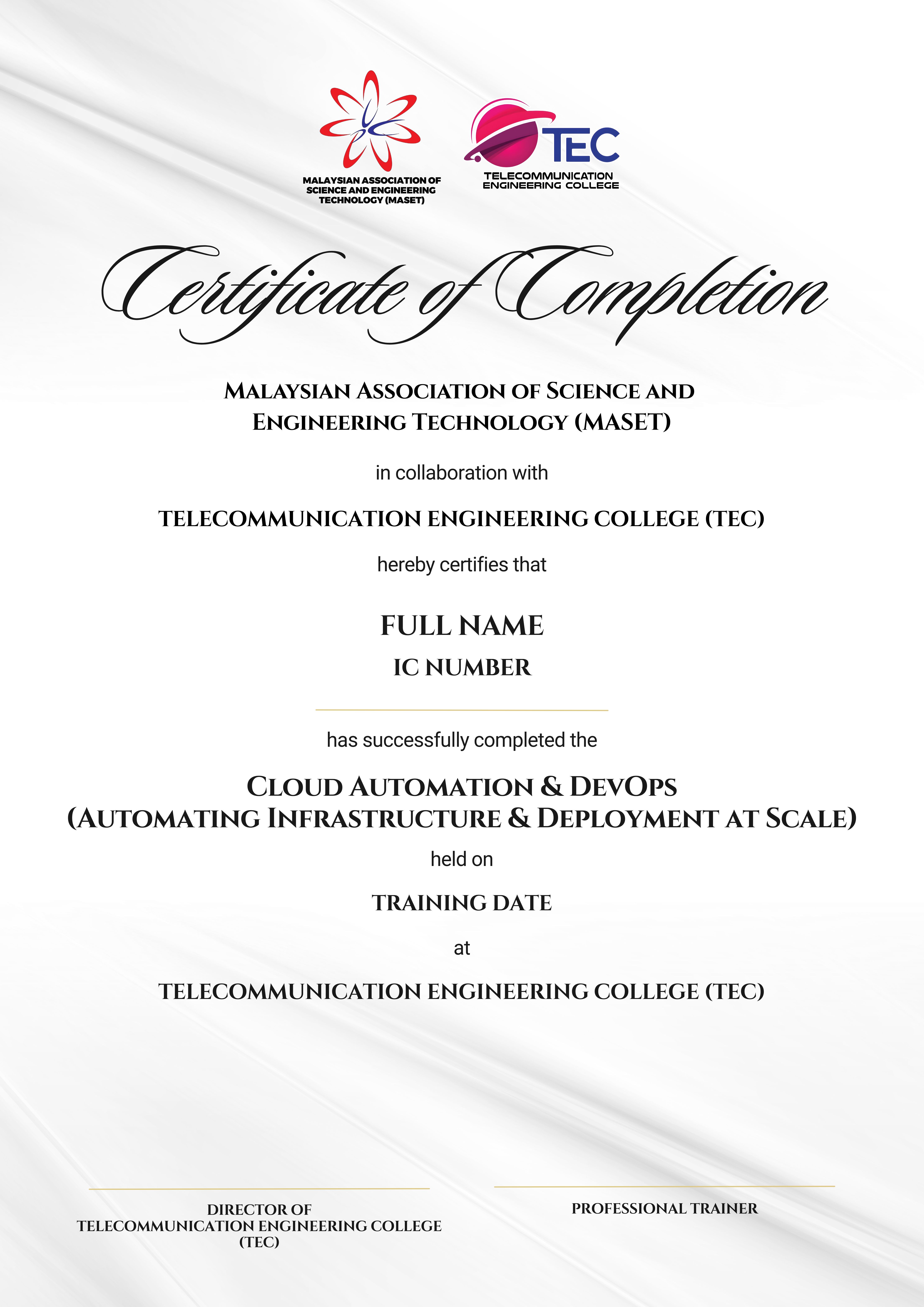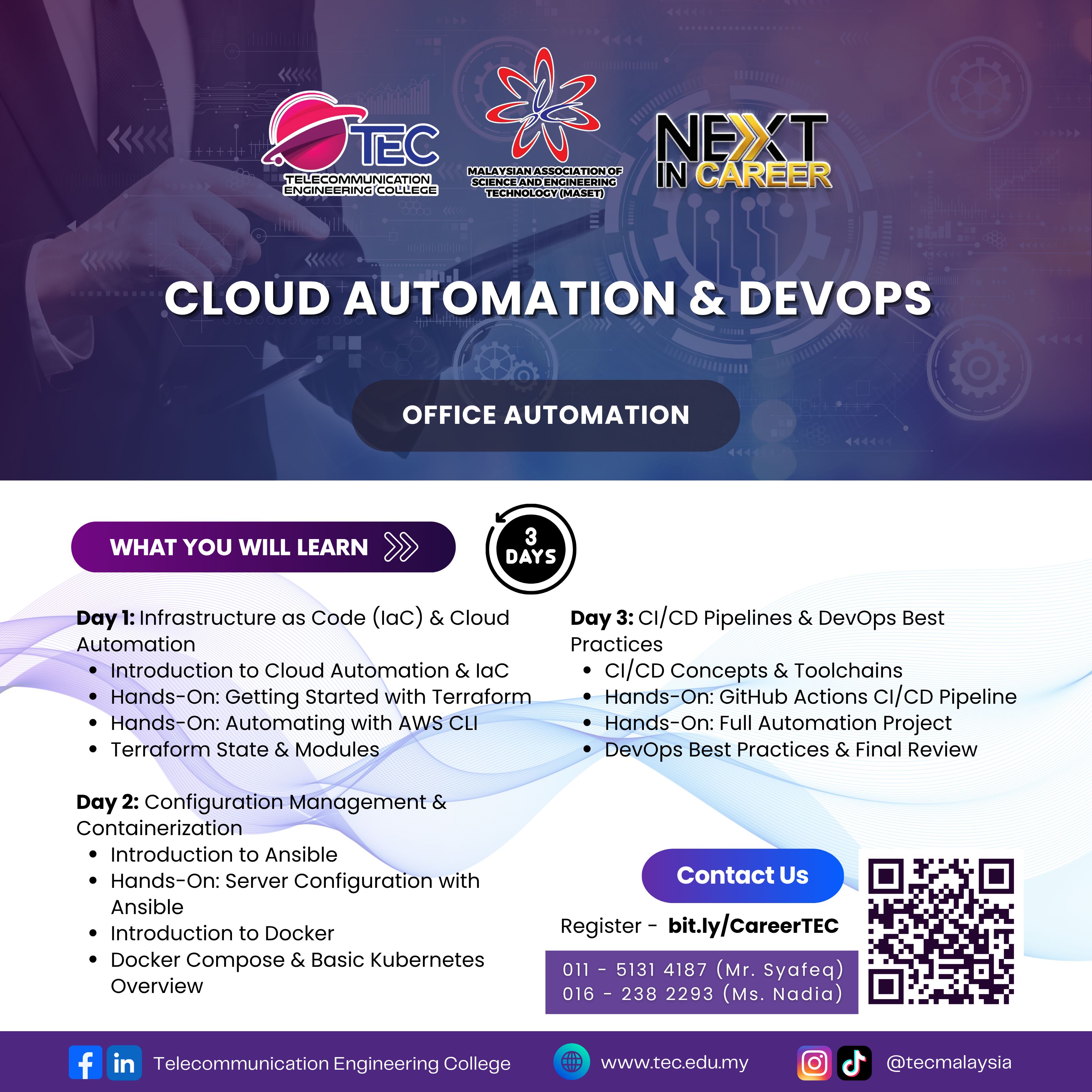This 3-day intensive hands-on course equips IT professionals, system administrators, and developers with practical skills in cloud automation and DevOps workflows. Participants will gain experience with Infrastructure as Code (IaC), continuous integration/continuous deployment (CI/CD), and containerization using tools such as Terraform, Ansible, Docker, Kubernetes, GitHub Actions, and AWS CLI.
Through a blend of lectures and practical exercises, participants will automate infrastructure provisioning, configure environments, deploy containerized apps, and integrate CI/CD pipelines in a real-world cloud environment. By the end of the course, attendees will be able to confidently apply DevOps principles to modern cloud architectures.
Learning Outcomes
By the end of this course, participants will be able to :
Who Should Take This Course?
This course is ideal for :
Pre-requisites
Participants should have :
Day 1 - Infrastructure as Code (IaC) & Cloud Automation
Module 1: Introduction to Cloud Automation & IaC
Module 2: Hands-On Getting Started with Terraform
Module 3: Hands-On Automating with AWS CLI
Day 2 - Configuration Management & Containerization
Module 1: Introduction to Ansible
Module 2: Hands-On Server Configuration with Ansible
Module 3: Introduction to Docker
Module 4: Docker Compose & Basic Kubernetes Overview
Day 3 - CI/CD Pipelines & DevOps Best Practices
Module 1: CI/CD Concepts & Toolchains
Module 2: Hands-On GitHub Actions CI/CD Pipeline
Module 3: Hands-On Full Automation Project
Module 4: DevOps Best Practices & Final Review
Upon successfully passing the examination for this course, participants will be awarded a certificate, an example of which is shown below.

Cloud Automation & DevOps

